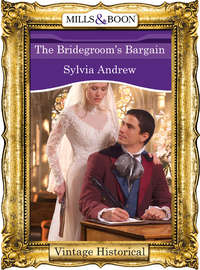
Полная версия
Regency High Society Vol 2: Sparhawk's Lady / The Earl's Intended Wife / Lord Calthorpe's Promise / The Society Catch
The man Jeremiah had sworn to kill.
She twisted about in Jeremiah’s arms to see his face, his expression rigid with a bitter, complete hatred she’d never before seen, then looked back at Hamil and his men standing in a line on either side of him. If Jeremiah tried to attack Hamil now, they would be on him instantly, and they would cut him to pieces before her eyes. They were ready for him, their hands resting easily on the hilts of their sabers, almost daring him to try.
Seven against one were odds no sane man would risk. But where Hamil was concerned, Caro wasn’t sure Jeremiah was sane; he had suffered too much, been pushed too far. Fear tightened in her breast, her heart pounding wildly as she realized what she must do to save him from himself.
In the tension that bound the men together, no one noticed as she slowly slipped her hand into her pocket. With trembling fingers she unhooked the catch on the gunlock and wrapped her sweating palm around the butt. She swallowed hard, and in her thoughts said a prayer for Jeremiah. She loved him enough to do this, this and more, if she must. Then, as quickly as she could, she jerked the pistol from her pocket and aimed it at the chest of the red-bearded man as she squeezed the trigger.
“Caro, no!’ She heard Jeremiah’s anguished shout as the gun seemed to explode in her hands. Through the acrid gunpowder smoke she saw the stunned faces of Hamil’s men and Captain Tomaso’s gaping mouth as she slammed down onto the hard planking of the deck, the pistol flying from her fingers.
What had happened? she thought crazily, gasping for breath. She had shot Hamil, yet she was the one who had fallen. She thought she’d done what Jeremiah had said, release the lock, draw the trigger, aim where the man was broadest.…
“Caro, love, look at me!” said Jeremiah frantically, his face above her, his eyes wild and his hair falling forward over her. She wanted to laugh from relief and joy, if she could only catch her breath. He was well, unhurt, and the force she’d felt pressing her into the deck was the weight of his body on hers. She’d done it! She’d saved him, her own Jeremiah.
Then abruptly his face was gone, his body torn from hers, and, still dazed, all she saw above her was the pale blue morning sky. She heard grunts and the scuffle of bare feet, the scrape of steel against steel, and by the time she had rolled over onto her hands and knees, the deck of the Colomba was silent again. Before her lay Jeremiah’s motionless body, his dark coat slashed and torn to show the white linen of his shirt, his face turned away from her, the wind from the water lifting and tossing his black hair above the spreading circle of blood. Unable to comprehend, she could only stare as Hamil, alive and unharmed, prodded Jeremiah’s chest with the toe of his red boot.
With a small whimper of denial she crawled across the deck to where Jeremiah lay. On her knees she bent over him, her pale hair tangling into his. He was so still, his face relaxed, his lips parted with some final word she’d never hear. She touched his cheek, cool and unnaturally pale beneath his sun-browned skin, and let her fingers fall into the blood, his blood, that stained the silvery deck beside him.
Wild with grief, she looked up at Hamil. “You’ve killed him,” she cried bitterly. “I was the one who fired at you, yet you killed him instead!”
Hamil frowned. “This shrew is a countess, Tomaso?”
“Si, si, yes!” said Tomaso, desperately eager. “Would I insult you with a gift of anything less? Mark her hair, her skin like porcelain beneath the dirt!”
The Scotsman stroked his thumb through his beard, studying Caro.
“Surely you will grant me safe passage now, signore! Who else but I, Tomaso, has ever brought you an English lady for your amusement?”
“She has not the look of a lady.”
“But the other one, the grandiosa contessa Inglese, assured me it was true!” exclaimed Tomaso, clutching his hands anxiously before him. “Would she have paid me so handsomely if it were not so, eh?”
Abruptly Caro raised her face, tears streaming down her cheeks. “The Dowager Lady Byfield did this? Betrayed me when I trusted her friendship, sought her help for her only son? Frederick’s mother hated me enough for this?’
Tomaso shrugged. “You were an inconvenience, cara mia, a difficulty she wished gone. You betrayed her son, eh? Now she has betrayed you.”
Caro bowed her head over Jeremiah, overwhelmed by sorrow and guilt. This was her fault, not just for firing the gun, but for everything, from the very beginning. If she had not gone to Jeremiah that first night, he would live still. She had brought the death of the only man she’d ever really loved. Her body still bore the warm evidence of their lovemaking not an hour before, and the enormity of her loss swept over her.
“On your feet, woman, so I might look at ye,” ordered Hamil. “Stand, or I’ll have ye dragged to your feet!”
Slowly Caro rose to face him, forcing herself to meet his gaze even as she swayed on her feet. No matter what Dorinda had done to her or what she had done to herself, she was still the Countess of Byfield, and for the honor of Frederick’s name she must not cower.
Oh, dear Lord, poor Frederick, and her heart sank even lower. How she’d failed him, too!
Hamil’s eyes narrowed. “Your name, woman. The truth, or with Allah as my witness I shall end your miserable English life now.”
“Caroline Harris Moncrief,” she said softly. “Countess of Byfield.”
“You swear it by all that ye infidels hold sacred?”
She nodded, her eyes filling again. “But why did you have to kill Captain Sparhawk?”
Hamil sniffed contemptuously. “He’s no more dead than I, m’lady, no thanks to ye. He’ll wish he were when next he wakes, but no ways worse. If I wished him dead, I woulda seen it done right, but what use would a dead man be to me?”
Her eyes widening with disbelief and hope, she began to drop down beside Jeremiah, but Hamil’s hand jerked her back to her feet.
“Come,” he said harshly. “I am your master now, and ye must think no more of him.”
Slowly, painfully, Jeremiah fought his way back to consciousness. He was on a ship. He knew that much from the slow rocking and the distant rushing sound of the waves, and the familiar sound was the one thing of comfort to him. His whole body ached and throbbed, but the searing, blinding pain was concentrated in his left temple, as if whatever had caused it still hammered against his head. He wanted to curl into himself against the pain and retreat again into unconsciousness, but his legs felt strangely heavy, too heavy to move.
From a distance beyond the water, he heard a woman call his name. Her voice was gentle, familiar, and instinctively he turned his head toward it for comfort, groaning at the pain the slight effort caused him.
“Jeremiah, love, you’re going to be all right,” murmured Caro as she placed another damp rag, torn from her petticoat, onto the angry, bruised lump on Jeremiah’s head. All she’d been given to tend him was a bucket of water and a tiny lamp to keep away the rats here in the hold of Hamil’s xebec, and she knew she should be grateful she’d been granted that much. The gash on Jeremiah’s head had been relatively minor, as Hamil had predicted, but the bruise worried her for the damage that might lie behind it. “You’ll be fine, I swear it, you will. Oh, love, will you ever forgive me what I’ve done to you!”
“What the devil have you done now?” croaked Jeremiah.
With a startled gasp Caro bent closer. “You are alive!”
“Barely.” He forced himself to open his eyes a fraction, her taut, worried face spinning before him in dizzy circles. “Damnation.”
“Here, drink this.” Gently she lifted his head enough for him to sip from the dipper of water. “But don’t move any more unless you wish to. There’s no reason to, anyway.”
“I can’t. What happened to my legs?”
“Nothing,” she said angrily. “Hamil’s men put you in irons, though where he thought an unconscious man would run I’ll never guess.”
Hamil. At once the whole bitter scene on deck came back to him. “I should never have given you that pistol. They could have killed you.”
“I was afraid of what you would try to do,” she confessed. “I thought I could shoot him first because no one suspected me. If you had even moved, they would have murdered you.”
“It seems they half did anyway.”
“I know.” She hung her head forlornly, the dipper clutched tightly in her hand. “There’s more that’s my fault, Jeremiah. It was Frederick’s mother who betrayed us first, selling us to Tomaso like sheep at the market. Your only misfortune was to be with me. Oh, I know I should never have trusted her, but for Frederick’s sake, I—I believed what I wanted to.”
Jeremiah reached out to take her hand, fitting his fingers into hers. He understood why she’d done it, maybe better than she did herself. With a family as strong as the Sparhawks behind him, it pained him to imagine poor Caro so starved for a parent’s affection and approval that she would turn to a mother as evil as Frederick’s.
“It’s done, and I’ll live,” he said, wondering whether it was love alone that had changed him, or if being struck on the head had had something to do with it, too. There’d been a time when he would have berated her for her misplaced trust and blamed her for how desperate their situation had become. But now all he saw was how much worse it could be; they were both alive, relatively unharmed, and they were still together. “I’ll hear no more about it being your fault.”
She would have wept if she’d had any tears left. “You’re too good for me, Jeremiah,” she whispered. “Far, far too good.”
“Good for nothing and fit for less, is closer to the mark,” he said gruffly. “But how are you, sweetheart? I knocked you harder than I intended, but I wanted you out of Hamil’s way.”
“I’m fine, now that you are, too.” She lifted his hand to her lips, her smile shaky. “Most likely I would have come closer to hitting Mount Vesuvius than Hamil.”
“True enough,” he agreed, thinking how strangely wonderful it was that, even as Hamil’s prisoners, they could still make jests. “We shall have to work on your aim.”
With a loud scrape the hatch overhead was lifted off, and a beam of bright sunlight pierced the gloom of the hold. Swearing, Jeremiah lifted his arm to shield his eyes. Three of Hamil’s crewmen dropped through the opening without bothering with the stairway, and motioned for Caro and Jeremiah to climb the steps to the deck above.
Caro scrambled to her feet, her hands squared defiantly on her hips. “Captain Sparhawk can’t be moved,” she said sternly to the tallest man. It didn’t matter that the man spoke no English; her voice and manner were expressive in any language. “He has suffered a very grievous wound to his head, and I don’t want him injured further.”
The man lifted his bearded chin higher, clearly offended to be addressed so insolently by a mere woman. His hand went to the hilt of his saber, another kind of wordless message.
But Caro held her ground, unimpressed. “I’m not going anywhere without Captain Sparhawk, and so you may tell Mr. Al-Ameer if—”
“Caro, lass, hush,” warned Jeremiah, unsteadily rising to his feet by leaning against the bulkhead. “This isn’t worth your neck. You know it could be we’ve made Tripoli and they’d like us to go ashore.”
“Oh.” Slipping her shoulder beneath his arm to help him walk, she glanced at him sideways, the proud, haughty countess suddenly gone and only a scared, vulnerable woman in her place. “Somehow everything will be all right, won’t it, Jeremiah?”
He sighed deeply, wishing he could be both truthful and encouraging. “Somehow, aye, it will, love. With you by my side, it always is.”
He knew he didn’t deserve that bright smile from her, but he claimed it anyway. God only knows when she’d have reason to smile again, and wherever he was bound, that lovely memory might be all he’d have to comfort him.
The midday sun off the water was blinding, slicing like razors into Jeremiah’s head, and he stopped at the top of the companionway, struggling to adjust to the brightness before he must face Hamil. He had a brief impression of a coastline, the curving arms of a wide bay, the white fortress city of Tripoli.
One of the seaman jabbed him in the back to hurry, and with enormous effort he raised himself from Caro’s support and forced himself to walk unassisted, the heavy iron chain dragging between his feet. Hamil stood aft near the wheel, watching them approach, and Jeremiah prayed not to falter or fall beneath his enemy’s eyes.
“Sparhawk.” Hamil looked him up and down, his lip curling at how torn and dirty Jeremiah’s clothing had become. “I didna remember the name until this morn.”
“Hamil or Gordon, I didn’t forget yours.” Jeremiah’s disdain equaled Hamil’s as he studied the Scotsman’s opulent dress, the silk sleeves billowing in the wind and the gold thread and sequins on his waistcoat twinkling like tiny reflected suns. Gotten up like some ten-guinea French whore, thought Jeremiah contemptuously, all spangles and tinsel and empty show.
“I took your Chanticleer, Sparhawk,” said Hamil slowly as he studied Jeremiah, the gentle burr of his accent softening the calculated cruelty of his words. “A bonny little brig. I sold her to the Bey of Tunis, who fancied a Yankee-built toy. Alas, the bey’s men are better suited to camels than the sea, and she broke up on the rocks off Zembra not a fortnight after I sold her off.”
Jeremiah felt as if he’d been struck again, and feeling Caro’s fingers tighten around his in silent sympathy did nothing to ease his sense of powerlessness. To learn that his Chanticleer, lovingly built to his own designs not four years ago on the river at home, had been casually, carelessly destroyed at the whim of a heathen ruler was to lose another friend. Until then he hadn’t realized how some part of him had planned to rescue the brig along with Davy. Grimly he wondered if the Chanticleer’s fate was some awful premonition, that he and Caro and Davy were all doomed to die like the brig on this same bleak, cheerless coast.
“I took your vessel last winter, Sparhawk,” said Hamil. Swiftly he reached out, grabbed the neck of Jeremiah’s shirt and tore the front in two. Instantly Jeremiah recoiled, his hands bunched in fists at his side as the two halves of his shirt fluttered back in the breeze. His chest was left bare, the jagged pale scar unmistakable beneath the whorls of dark hair, and Hamil’s smile was wide.
“I took your Chanticleer,’ he continued, satisfied by what he’d seen, “and ye gave her up with nary a fight or a whimper.”
“Damn your lies,” answered Jeremiah sharply. “Isn’t this scar proof enough? We fought your thieving deceit to our dying breath.”
“Then why, Sparhawk,” taunted Hamil, “do ye still live?”
“To see you go to the devil first, Hamil.” Forgetting all caution, Jeremiah spat at the Scotsman’s feet. “God help me, I’ll see you in your grave.”
“As Allah wills,” said Hamil, glancing briefly at the spittle on his red boots, “ye cowardly son of a Yankee bitch.”
Jeremiah lunged toward him, the shackles clanging across the deck, and immediately four of Hamil’s men seized his arms. He lashed out against them blindly, furiously fighting as much against his own sense of helplessness as the four men who held him fast. But he was still weak and his own strength soon exhausted, and as they jerked him, panting, roughly to his feet, Jeremiah barely had breath enough to curse them all.
But Caro, where was Caro? Twisting wildly, he searched for her and found her, standing pale and rigid with self-control, with a turbaned sailor holding each of her arms. The longboat for shore was being lowered, and clearly she would be a passenger in it. With sickening clarity, Jeremiah realized how neatly he had let his temper play into Hamil’s hands. What easier way could there have been for her to be separated from him?
“Where are you taking her?” he demanded. “By God, if you harm her—”
“Ye shall do what, my fine Yankee captain?” The Scotsman stepped closer, his blue eyes bright with malicious amusement beneath his bristling ginger brows. An ill-fed boy rushed to kneel at his feet and wipe his master’s boots clean, and when he was done Hamil carelessly kicked him aside. “Ye canna help yourself. How can ye help the lady?”
Nothing Hamil said could have wounded Jeremiah more, for what he said was the truth. She was at the ladder now, her pale hair blowing around her face and her blue eyes wide with longing and despair as she looked to him for the help he couldn’t give. They were going to take her and he might well never see her again, and there wasn’t a blasted, bloody thing he could do to stop them. So much, he thought bitterly, for the power of love. He had failed them all, his ship and crew and now his own dear Caro.
“But ye are not the only cowardly American,” continued Hamil scornfully as he pointed over the larboard rail. “Ye have much company.”
There in the shallows of the harbor lay the frigate Philadelphia, once the pride of the tiny American navy, run aground and then surrendered in confusion by her captain to the pasha’s men. Now in place of the stars and stripes that Jeremiah himself had proudly fought beneath flew the green flag with three white crescents of the frigate’s captors, and even at this distance Jeremiah saw how sadly ill kept the once-great ship had become.
The three hundred Americans of the Philadelphia’s crew were already prisoners in that white city; Jeremiah would make it three hundred and one. He thought again of the wreck of his own hopes here in the same harbor, and craned his neck for one more glimpse of Caro.
But the space where she had stood was empty, and so, he knew, was the place where his heart had been.
“Where are you taking me?” asked Caro as the spray from the boat’s oars blew into her face. She clung to her seat as they raced across the bay, her gaze never leaving the xebec where Jeremiah still remained. “To some other prison?”
Hamil frowned. “No prison, m’lady. Ye are a countess. Ye shall be a member of my household for so long as it pleases.”
She didn’t want to know who would be pleased, or how. “I can tell you now you’ll get no ransom for me.”
He shrugged. “It’s not for the ransom that I took ye, m’lady.”
She could no longer make out the people on the xebec’s deck, and she wondered with despair if they’d taken Jeremiah back to the hold. Dear God, she prayed, let the lamp still be there, for she didn’t know what would happen to him if he was forced alone into the darkness. She could not forget her final sight of him earlier, exhausted and defeated as he sagged between the sailors supporting him, the pain and defeat in his eyes already almost beyond bearing. “What will you do with Captain Sparhawk?”
“For his insolence, I should send him as a slave to the quarries. A man his size would be useful there, and the sun and the lash would go far to curing his temper.” His smile chilled her more than his words. “In a year ye would not recognize him.”
She could not imagine a man as proud as Jeremiah a slave, toiling in a quarry like a pack animal. “It would kill him.”
“Aye, perhaps it will,” said Hamil as casually as if they were discussing the likelihood of rain. “But ye best think no more of him, m’lady.”
“But I love him,” she cried with anguish, “and I cannot forget him simply because you order it!”
“Ye can, and ye must.” His face was stern, his voice disconcertingly quiet despite the threat it carried. If she had been a man, realized Caro, he would have killed her, too, without another thought. “Ye are in Tripoli now, m’lady, and I am your master. Ye have no others. Ye will do well not to forget it.”
The city was enclosed by a high, thick, white wall, flanked by two fortresses, bristling with cannon to protect the harbor from invasion. Caro, Hamil and a small party of his men entered by the northwest gate that led to the harbor, riding on horses that had been waiting at the waterfront for them. As they rode slowly through the crowded, narrow streets, people were quick to run from Hamil’s path, some men bowing respectfully low and others merely staring with open awe at their country’s most notorious corsair.
For Caro, there were only stares. At first she wondered why there were no women in the streets, until she realized that they were the shapeless, scurrying figures wrapped so completely in black that only one eye showed. Caro, sitting sidesaddle in her European clothes, her face uncovered and her pale hair loose to her shoulders, was a sight few Tripolitans could resist. She kept her eyes straight ahead, ignoring the leering men as best she could, but by the time they reached Hamil’s house, she was too hot and exhausted from the strain to notice much except the tall marble pillars that they passed between.
With more gallantry than Caro either expected or wished, Hamil himself came to help her from her horse, his large, freckled hands familiarly taking her by the waist and lifting her from the ground. He was a large man, nearly as big as Jeremiah, and equally accustomed to the power his size granted. As soon as her feet touched the ground she swiftly eased herself away from his hands.
He noticed her skittishness, his eyes narrowing, but said nothing, merely beckoning for her to follow him through a short passageway. To her surprise they entered an elegant courtyard, two stories high with open piazzas that faced onto the courtyard. More columns of polished Egyptian marble supported the piazzas, and the floor of the courtyard was inlaid with elaborate porphyry.
In the center was a carved marble cistern and a bench beside it, shaded by the nodding fronds of a small date palm. On the bench were plump red cushions, a pitcher and a goblet, a small book left open, and discarded on the floor lay a pair of green open-backed lady’s slippers, but no sign of the reader who’d left them. Yet Caro’s hopes rose. If there was already a lady in Hamil’s house—a lady frivolous enough to wear embroidered green slippers with red heels—then perhaps his interest in Caro would be only as a hostage.
Two servants, a thin man in a turban and an older woman, rushed to Hamil, bowing low enough to touch their foreheads to the floor before him. He waved his hand impatiently for them to rise and gave them orders in a language Caro didn’t understand. The woman turned to her and bowed, though not so low as she had to her master, and nodded vigorously.
“Abidzu will take ye to your room,” explained Hamil. “She will bathe ye, and see that ye are dressed more befitting your station. Ye may go wherever ye please in my house, but if ye try to leave without my permission, ye shall be punished.”
“So I am in fact your prisoner?” asked Caro tartly, and immediately regretted it. What was she doing, baiting him like that?
But to her surprise, Hamil looked disconcerted, not angry, as he glanced away, running his thumb through the thicket of his beard. “In my home ye shall want for nothing, m’lady,” he repeated. “Ye shall have every comfort.”
“Except my freedom?”
He ignored her question. “Tonight, when ye have bathed and rested, ye will dine with me. Abidzu will bring ye to my rooms.”
He turned swiftly, his boot heels echoing across the stone floor as he left with his men. Caro sighed, rubbing her fingers into her temples. She didn’t want to dine with Hamil tonight, especially not in his rooms, but there was probably no way she could refuse without earning that promised punishment, whatever it might be. Could it be so much worse than being alone with the man in his bedchamber?
Wearily she followed Abidzu up the stairs to a room that overlooked the courtyard, a room that was clearly intended for favored guests, not prisoners. Rich carpets were laid across the marble floor, and the walls were inlaid with painted porcelain tiles. For sleeping, there was a kind of raised platform with a mattress, coverlet, and cushions in the center of the room. Besides a large mirror on the wall and two low chests, the room’s only other furnishings were two old-fashioned English armchairs that looked as out of place as Caro herself felt. She went to the single arched window, its shutters thrown back to catch the breezes from the water.








